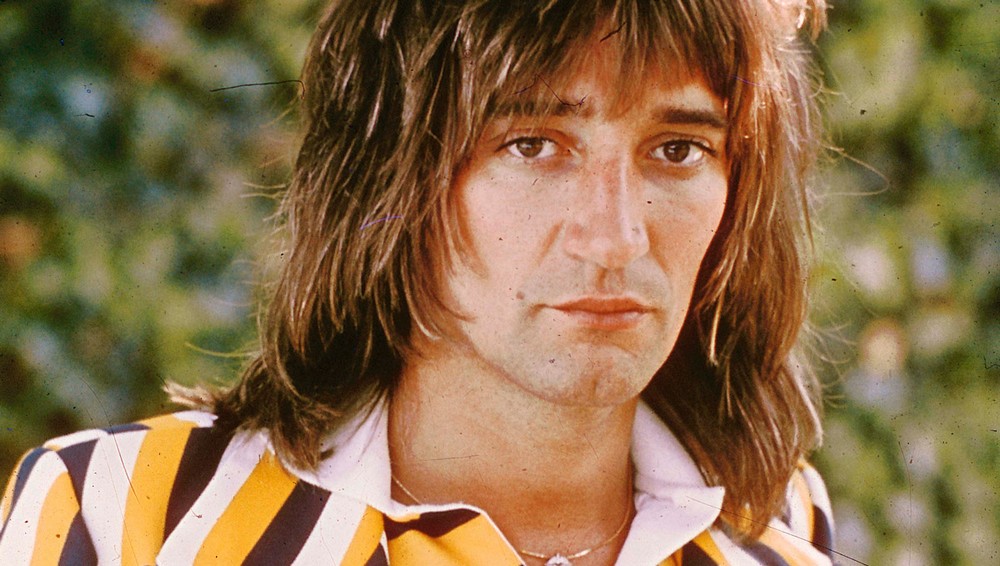The many lives of a British icon
With football in his veins and a harmonica in his pocket, he developed in Highgate. Rod Stewart, the son of a Scottish master builder raised in London, had working-class pride ingrained in his bone and a cheeky rebellion in his attitude. Though it was his sheer vitality that attracted him to the blues establishments of 1960s London, his first steps into music followed brushes with painting and the football pitch. Early engagements with Long John Baldry and Steampacket honed his perseverance, but it was Jeff Beck who provided the inspiration. Rod’s voice erupted like sandpaper over flame on Truth and Beck-Ola: urgent, emotional, inescapable.
Then came Faces, loud, messy, brilliant. With Ron Wood at his side, Stewart leaned into the swagger of rock and roll while grounding it with pub-bred warmth. Songs like “Stay with Me” were anthems of chaos and fraternity, not just hits. His solo work meanwhile developed in a different universe, more reflective and more soulful. Every Picture Tells a Story (1971) not only highlighted his voice but also perfectly encapsulated an era when rock could still sound natural. For the restless and the romantic, “Maggie May” evolved into a hymn, a tale of defiance and regret that still inspires audiences spanning several decades.
Rod Stewart flourished in two worlds. He could murmur with an acoustic then yell with a band. That equilibrium made him magnetic. On Mandolin Wind, he sang with a gentleness like late summer sunlight; “You Wear It Well” presented sardonic narrative with flair and stinging. Drawing from folk, RandB, and early rock, he never sounded like a tribute. His compositions gave mandolins to heartbreak and violins to blues. He relocated to America and began leaning into a silkier, more radio-ready sound with Atlantic Crossing in 1975. “Sailing” revealed his expanding range, both musically and emotionally.
The late 1970s and early 1980s were a dazzling, glitzy scene. With close trousers, gravity-defying blonde hair, and a voice still able to shatter hearts, Rod evolved into a stadium presence. While “Do Ya Think I’m Sexy? ” raised disco flirtation’s intensity, “Young Turks” added speed and synthesizers to his look. Still, songs like “Tonight’s the Night” and “I Was Only Joking” revealed he never lost contact with vulnerability. He sang of love, of desire, of evenings that might disintegrate or become everlasting.
Rod Stewart’s voice has a grain no studio polish can eradicate. It’s the sound of genuine emotion, broken, courageous, ecstatic. He knew a fantastic song calls for both accuracy and attitude. This explains why songs such “The First Cut Is the Deepest” or “Downtown Train” have timeless appeal. He never held to one identity; he changed along with the times while still clearly being himself. His voice remained grounded in human experience even as trends changed around him.

Stewart took unexpected turns with grace in the 1990s and 2000s. Wrapped in velvet and rasp, his Great American Songbook series introduced a new generation to jazz classics. He respectfully and elegantly reinterpreted the classics; he didn’t copy Sinatra. Sold millions of copies, the albums reminded the world that Rod still had the capacity to surprise, charm, and sing a song right to the heart. When many friends faded, he stayed bright.
Rod’s bond with his audience has always transcended mere showmanship. He sings with a genuineness that spans generations whether he’s singing “Have I Told You Lately” or stomping through “Hot Legs. ” His performances are like reunions: vivacious, funny, a little wild, but always anchored in generosity. His stage presence is honest, not just appealing. He performs the songs like shared memories, jokes, and dances.
His farewell tour became a celebration of all he had created in 2023. Fans of all ages gathered across continents to hear that voice once again, not for nostalgia but rather for joy. Focusing on storytelling and acoustic adaptations, Rod is getting ready a stripped-back residency in London as of 2025. This is not a curtain call. Another chapter is here. One where he lowers the volume just enough to let the poetry breathe.
One of the few people whose career spans centuries without losing its heart, Rod Stewart continues to be a rare one. His collection is a jukebox of tenderness and success, hedonism and sadness. He molded lives rather than just melodies. His voice, raspy, melodic, absolutely distinctive, still resounds via radios, stadiums, and secluded areas. Rod Stewart keeps demonstrating in a world after the next thing that what counts most is timeless.





